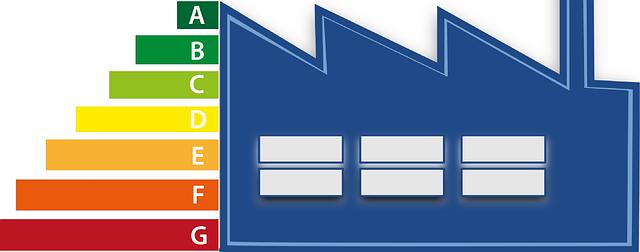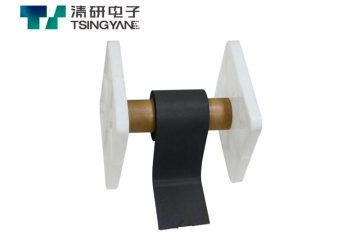Table of Contents
- Understanding Energy Efficiency Certificates and Their Importance
- Key Benefits of Obtaining an Energy Efficiency Certificate
- How to Obtain and Maintain an Energy Efficiency Certificate
- Common Misconceptions About Energy Efficiency Certifications
- Strategies for Improving Energy Efficiency and Maximizing Certification Benefits
- Q&A
- Insights and Conclusions
Understanding Energy Efficiency Certificates and Their Importance
Energy efficiency certificates, also known as energy saving certificates or ESCs, serve as a critical element in promoting sustainable practices across industries. These certificates are issued by either government bodies or authorized organizations, confirming that a specific amount of energy has been saved through efficiency improvements. By encouraging businesses and individuals to invest in energy-saving technologies, these certificates help to reduce overall energy consumption, lower greenhouse gas emissions, and foster a more sustainable future.
Understanding the significance of these certificates involves recognizing their role in various sectors. They not only facilitate financial incentives for energy efficiency projects but also drive policy compliance and regulatory frameworks. Through mechanisms such as trading, businesses that exceed energy saving targets can sell their excess certificates to those who struggle to meet their goals. This creates a dynamic marketplace that promotes innovation and investment in energy-efficient solutions, benefitting both the economy and the environment.
The importance of energy efficiency certificates can be summarized through the following key benefits:
- Cost Savings: Businesses and homeowners can significantly reduce their energy bills by adopting energy-efficient practices, leading to direct financial savings.
- Environmental Impact: Reduced energy consumption translates to lower carbon emissions, contributing to a healthier planet.
- Regulatory Compliance: Certificates assist in adhering to energy-saving mandates, avoiding potential fines or penalties.
- Market Growth: The demand for energy-efficient solutions stimulates growth in related industries and job creation.


Key Benefits of Obtaining an Energy Efficiency Certificate
Obtaining an energy efficiency certificate can significantly enhance the value and marketability of your property. This certification not only demonstrates your commitment to sustainable practices but also attracts potential buyers who are increasingly prioritizing energy-efficient homes. A well-certified property may even command a higher sale price, as buyers are often willing to invest more in properties that help reduce their long-term utility costs.
Moreover, this certification can lead to substantial cost savings over time. By improving energy efficiency, you reduce the overall energy consumption of your home or business, which directly translates to lower utility bills. Additionally, many regions offer incentives, such as tax breaks or rebates, for those who invest in energy-efficient upgrades. This financial support can offset the initial costs associated with improvements needed to achieve certification.
an energy efficiency certificate often enhances compliance with local regulations and standards. Many jurisdictions have set ambitious energy efficiency goals, and obtaining this certification can help ensure that your property meets these requirements. By staying ahead of regulatory trends, you secure your investment’s longevity while contributing to broader environmental goals. The advantages of certification go beyond immediate savings; they position your property as a leader in sustainability.


How to Obtain and Maintain an Energy Efficiency Certificate
Obtaining an energy efficiency certificate typically involves a precise assessment of your property’s energy performance. Start by consulting with accredited professionals who can conduct an energy audit. This audit evaluates various factors including your building’s insulation, HVAC systems, lighting, and appliances. Once the assessment is complete, the auditors will use this data to determine how energy-efficient your property is while identifying potential improvements. The next step is to implement the necessary upgrades, which may include:
- Enhancing insulation in attics and walls
- Upgrading to energy-efficient appliances
- Installing programmable thermostats
- Implementing energy-saving lighting solutions
After making the appropriate enhancements, you can re-engage the auditors for a second evaluation. If your property meets the required benchmarks, you will receive the energy efficiency certificate. This certificate is valid for a specific period, often ranging from one to five years, depending on local regulations. To maintain your certification, it’s essential to:
- Schedule regular energy audits
- Stay informed about changes in energy efficiency regulations
- Consistently upgrade outdated systems and appliances
- Educate occupants about energy-saving practices
Maintaining the standards set by your energy efficiency certificate not only saves you money on utility bills but also contributes significantly to environmental sustainability. If you ever plan to sell your property, having an up-to-date certificate can enhance its marketability by demonstrating your commitment to efficiency. Above all, proactive measures and continuous improvement are key elements in both obtaining and retaining your energy efficiency certification.


Common Misconceptions About Energy Efficiency Certifications
When it comes to energy efficiency certifications, many people have misconceptions that can cloud their understanding of what these certifications actually entail. One common belief is that energy efficiency certifications are only relevant for large commercial buildings. In reality, residential properties can benefit significantly from these certifications as well, identifying areas where energy consumption can be reduced without sacrificing comfort. Homeowners and landlords can achieve cost savings on energy bills, while also enhancing property value through certified upgrades.
Another widespread misconception is that achieving energy efficiency certification is a lengthy and complicated process. While it’s true that documentation and assessments are required, many certification programs have streamlined their procedures to make them more accessible. For instance, many organizations now offer online assessment tools and guidelines that simplify the process. This means that property owners can pursue certification without overwhelming time commitments or excessive costs, making it a more achievable goal for a broader audience.
Lastly, some believe that energy efficiency certifications are merely marketing tools with no real value. This couldn’t be further from the truth. Certifications often come with rigorous standards and testing that ensure a building meets specific energy-saving criteria. These credentials not only promote transparency but also hold everyone accountable, from builders to consumers. Here’s a simple comparison of popular energy efficiency certifications to illustrate their distinct benefits:
| Certification | Type | Benefits |
|---|---|---|
| LEED | Commercial & Residential | Focuses on sustainability and environmental friendliness. |
| ENERGY STAR | Residential | Identifies efficient appliances and practices to lower bills. |
| BREEAM | Commercial | Encourages sustainable construction and innovation. |




0 Comments